The signs of schizophrenia can often be difficult to identify. Once an individual identifies the symptoms and side effects of schizophrenia, the next step in the recovery journey become clear.
Understanding Schizophrenia
Learn about schizophrenia
A person diagnosed with schizophrenia generally suffers from a disconnection between their thoughts, feelings, and behaviors. These misperceptions can lead to the person believing things that are untrue (delusions), and seeing things that are not there (hallucinations). Schizophrenia usually first emerges in adolescence or early adulthood. However, younger cases have been reported as well.
This mental health condition can make it extremely difficult to think clearly, logically, and rationally, to experience appropriate emotional responses, to act in socially acceptable ways, and to be able to discern between what is real and what is not real. Individuals with schizophrenia may hear voices others do not hear, and believe people can read their minds or control their thoughts. Pervasive paranoia is common, causing these individuals to think they are in danger, leading to constant fear, social withdrawal, or agitation.
Families, friends, and communities are affected by the symptoms of schizophrenia because individuals suffering from the disorder may have trouble keeping a job or taking care of themselves, thus requiring them to rely on others for help. Fortunately, with the proper supports in place and with the help of a quality treatment center, individuals suffering from schizophrenia can learn to manage their symptoms and gain greater productivity in their daily lives.
Statistics
Schizophrenia statistics
In the U.S. it has been estimated that about 1% of the adult population suffers from schizophrenia. While prevalence estimates indicate equal rates in men and women, men tend to show an onset of symptoms at a younger age than women, and women display a less severe course. While it has long been believed that the childhood onset of schizophrenia is extremely rare, this belief is shifting as there is growing awareness of children presenting with symptoms consistent with schizophrenia at a younger age.
Causes and Risk Factors
Causes and risk factors for schizophrenia
While the root cause is not always clear, there is evidence pointing to several potential causes linked to the development of schizophrenia including:
Genetic factors: It has been recognized that schizophrenia runs in families, and while the prevalence rate for the condition is 1% in the general population, the rate increases to 10% for individuals with a first degree relative who has the disorder. Additionally, when an identical twin has schizophrenia, the other twin will develop schizophrenia in 50% to 65% of cases.
Environmental Factors – While it is clear that schizophrenia is predominantly a disorder of the nervous system, certain environmental factors have been connected to the development of the disorder. These factors include exposure to toxins, viruses, as well as prenatal malnourishment and brain damage during birth.
Risk Factors:
- Individuals who were undernourished when in the womb
- A history of mental illness in the family, especially in immediate family members
- Mother experiencing stress, diabetes, or infections during pregnancy
- Distress during birth (for example, lack of oxygen at birth)
- Individuals with older fathers
- A history of other personality disorders such as schizotypal or paranoid personality disorders
Signs and Symptoms
Signs and symptoms of schizophrenia
The symptoms of schizophrenia may develop gradually over months or years. At times, the individual may experience a number of symptoms, while other times, he or she may experience only a few of the following:
Cognitive symptoms:
- Difficulty concentrating, maintaining attention, or focusing
- Trouble with memory
- Disorganized thoughts and speech
- Being unable to screen out extraneous sounds
- Distractibility
- Firmly held beliefs that are not accurate even in light of evidence that contradicts them (delusions)
- Decreased ability to begin and sustain tasks
- Thoughts that “jump” quickly from one topic to another with only the barest of connections (“loose associations”)
- Agitation
- Seeing things that are not truly there (hallucinations)
- Paranoia
- Being unable to understand information in a way that allows it to be used
- Irritability, feeling tense
Behavioral symptoms:
- Difficulty sleeping
- Unusual or bizarre behaviors
- Speaking little, even when in a forced interaction
- Making up words (neologisms)
- Clanging (word rhyming)
- Catatonia
- Stereotyped movements
Psychosocial symptoms:
- Difficulty maintaining relationships
- Trouble keeping a job
- Social withdrawal
- Loss of pleasure in everyday life
While many of these symptoms can make it difficult, if not impossible, to function normally, better treatments have been developed that can successfully help to manage almost all the symptoms of schizophrenia.
Effects
Effects of schizophrenia
Due to the severity and range of symptoms of schizophrenia, there are numerous damaging effects caused by the disorder if left untreated, including but not limited to the following:
- Financial instability
- Suspiciousness
- Hostility
- Troubled relationships
- Social isolation
- Suicide
- Self-harm
- Difficulty completing normal daily activities
- Violent episodes which are viewed as self-defense in response to paranoid ideation
- Injuries and accidents due to confusion or disorientation
- Incarceration
- Homelessness
- Substance abuse as an attempt to self-medicate unpleasant symptoms
Co-Occurring Disorders
Schizophrenia and co-occurring disorders
As is the case with many mental health conditions, a number of disorders have been shown to co-occur fairly frequently with schizophrenia, including but not limited to the following:
- Substance use disorders
- Anxiety disorders
- Obsessive-compulsive disorder (OCD)
- Depressive disorders


